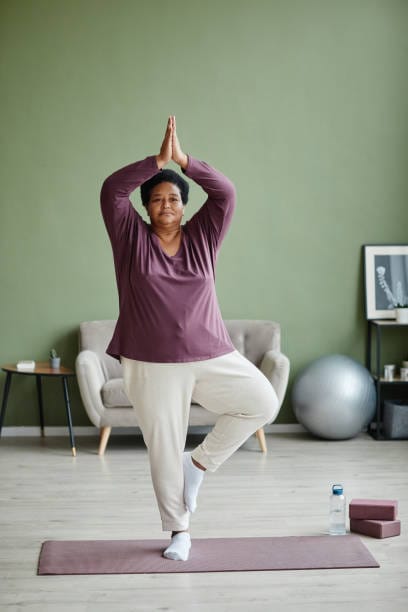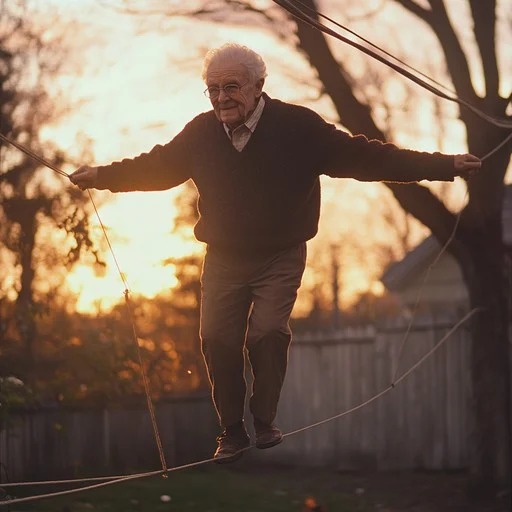Maintaining good balance is essential for staying active and preventing injuries, yet it’s something many of us take for granted—until it becomes a challenge. As we age, changes in our body and lifestyle can significantly affect our ability to balance. In this blog, we’ll explore why balance declines with age and how physiotherapy can help maintain and improve it.
Why Does Balance Decline with Age?
- Changes in Sensory Systems
Balance relies on three main sensory systems: the vestibular system (inner ear), vision, and proprioception (sensing body position). Aging can impair these systems:- Vestibular system: The inner ear’s ability to detect movement and orientation diminishes, leading to dizziness or unsteadiness.
- Vision: Declining eyesight makes it harder to judge distances and see obstacles.
- Proprioception: The sensitivity of nerves in muscles and joints decreases, making it harder to sense where your body is in space.
- Muscle Strength and Flexibility
Aging muscles lose strength and flexibility, particularly in the legs and core, which are critical for balance. Reduced physical activity can accelerate this process. - Slower Reaction Times
As we age, our reaction times naturally slow. This can make it harder to respond quickly to balance challenges, such as tripping or slipping. - Chronic Health Conditions
Conditions such as arthritis, diabetes, or neurological disorders can affect mobility and balance. Medications for these conditions may also contribute to dizziness or unsteadiness. - Fear of Falling
After a fall, fear of falling again can lead to reduced physical activity, further weakening muscles and balance. This cycle can be hard to break without intervention.


How Can Physiotherapy Help?
- Balance Assessments
A physiotherapist can evaluate your balance, mobility, and risk of falls. This assessment helps identify specific challenges and tailor a treatment plan. - Strength and Stability Exercises
Targeted exercises improve the strength of key muscle groups, including the legs, hips, and core. Improved strength leads to better balance and stability. - Gait Training
Physiotherapists can help address issues with walking patterns, ensuring a smoother and more stable stride. - Vestibular Rehabilitation
For individuals experiencing dizziness or vertigo, vestibular physiotherapy can help retrain the inner ear to respond more effectively. - Proprioception Training
Exercises designed to improve body awareness can enhance your ability to stay balanced in various situations. - Education and Fall Prevention Strategies
Physiotherapists offer practical advice on reducing fall risks at home and in the community, such as using assistive devices or modifying your environment.
Tips for Maintaining Balance as You Age
- Stay Active: Regular physical activity like walking, yoga, or tai chi can help maintain balance and flexibility.
- Challenge Your Balance: Simple exercises like standing on one foot or walking heel-to-toe can improve balance over time.
- Check Your Vision: Regular eye exams ensure your glasses or contact lenses are up-to-date.
- Fall-Proof Your Home: Remove tripping hazards, improve lighting, and use railings or grab bars as needed.
While balance naturally declines with age, it’s not an inevitable part of growing older. With the right strategies and support, you can maintain and even improve your balance to stay active and independent. If you’re concerned about your balance or have experienced falls, physiotherapy can provide the tools and guidance you need to regain confidence.
